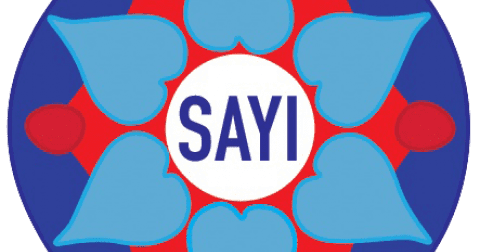South Asian Youth Initiative Conference returns to Yale
The 2023 South Asian Youth Initiative Conference, or SAYI, featured performances, panels, speeches and meals that celebrated South Asian identity and diversity.

Courtesy of SAYI
Two decades since it was first hosted at Yale in 2003, the South Asian Youth Initiative Conference lit up campus this weekend with a lineup of workshops, presentations, affinity groups, performances and banquets, all featuring guests from throughout the country.
Mental health, LGBTQ+ rights, environmental racism and media representation of marginalized voices were among the conversation points which took center stage at the event. Held on Feb. 11 and 12, the conference tackled various humanitarian crises while celebrating some of the brightest parts of South Asian culture.
This year’s theme, “Shaping the Modern Diaspora,” emphasized the evolving sociopolitical discourse surrounding South Asian activism and identities.
“[The conference] is a national event aimed at reflecting demographic shifts and developing a longer-lasting forum for discussion, solidarity, and activism in the South Asian and South Asian-American community,” Shan Lateef ’25, a co-director of the conference, wrote in a statement to the News. “There have not been clear spaces for students to discuss and react to current events.”
For many, SAYI’s programming was an opportunity to engage communities across colleges and platforms, exposing students to the professional and social diversity of the South Asian community. From “The Voice” contestant Parijita Bastola to Anirudh Pisharody from the Netflix hit series “Never Have I Ever,” Saturday and Sunday brought to Yale some of the biggest names in entertainment, music, finance and hospitality.
Fabiha Rafrafin ’25, who was involved in pitching the conference to sponsors and speakers, was particularly proud of the fashion show that took place on Saturday evening — a product of many hours dedicated to finding brands that aligned with SAYI’s values and working with models from various South Asian backgrounds.
According to attendee Poojitha Kapireddy from Virginia Tech, several of the arts and media panelists shared that they received criticism from South Asian audiences who did not feel fully represented by the characters they portrayed, but that they also saw the backlash as a sign of the need for more diverse representation.
Pujita Jethwani from Virginia Tech, who also attended the conference, noticed that all the featured speakers “embodied” a passion of wanting to uplift their respective communities. She resonated with Sakhi Youth Advocate Sirajum Sandhi’s discussion of the extension of caste and racial struggles into the present day. The notion of a post-racial society does not exist, according to Sandhi, and misinformed perceptions can cause “silencing,” “victim blaming” and the dismissal of an entire group’s challenges.
As she reflected on the “Caste, Colorism and Gender Violence” panel, Jethwani recalled a conversation with one of the speakers, Reverend Dr. Evangeline Anderson-Rajkumar, who explained to her the interwoven influences that forms of oppression have on each other. Discrimination can be envisioned through an octopus, she said, with patriarchy as the body and sexism, racism, colonialism, casteism and nationalism extending outwards as the tentacles.
The activism necessary to combat these issues extends beyond education and raising awareness, requiring self-initiative, Jethwani learned. She found Sandhi’s comparison of love to education particularly powerful — namely the notion that the more one loves a person, the more they would try to learn about the challenges confronting them.
It is this collective caretaking from people of all fields of study that enables countries to target global issues such as climate change, fast fashion and disease outbreaks, Kapireddy added. She noted that while government and policy interventions can set the “framework” for change, individual inertia and grassroots action should not be underestimated in the struggle for human rights.
This year’s SAYI conference was sponsored by over 20 companies and campus funds, including K-12 Insight, Product of Culture Lupin Pharmaceuticals and Ethan Allen Furniture. More sponsors are listed on the SAYI website.
The first South Asian Solidarity conference was hosted at Yale in 2003, though the event was later rebranded to the South Asian Youth Initiative to be inclusive of high school students and graduates.







